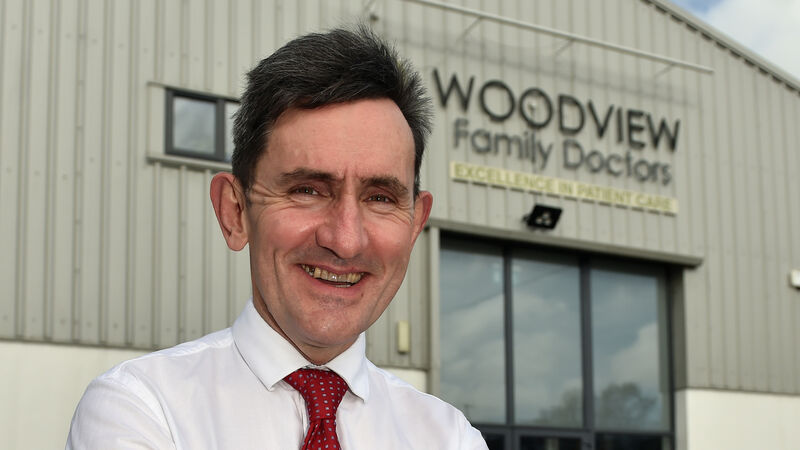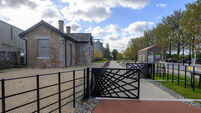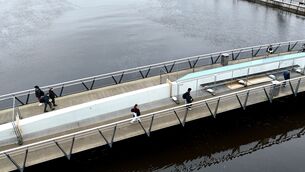Cork GP hopes Ireland won't become a ‘medical desert’ with hour-long journeys to see doctor

Dr Diarmuid Quinlan, a GP in Glanmire, in Co Cork, said that of Ireland’s 4,200 GPs, 600 will retire in the next three years. The number of GPs needs to increase by 50% to provide adequate care.
“We now have among the oldest population in the EU,” said Dr Quinlan. “In 2019, we had 701,000 people aged 65 or over and, in 2023, we’ve 806,000 aged 65 and over: It’s up 15%.
“Old people accumulate diseases and they need substantially more care than younger people, and GP care in particular.”
The impact of the pandemic on the health system is still being felt and is likely to be a factor for some considerable time.
“Along with hospitals whose workload is impacted by covid, covid will for ever impact the increased GP workload.” The expansion of the medical-card scheme to allow children to have free consultations has added to the pressure, even though it’s only bringing consultations for children up to the levels in the UK and Europe.
“Finally, the Government increased the general medical expansion, so the consultation rate for people with medical with children goes up by about 30% — that’s not at all to blame the parents of children, because what happens is they go from being below the European average rate for children of that age to the norm; essentially, their consultation rates become similar to those in the UK and Europe.”
“The GP workforce is relatively static for the last four years; in contrast, the hospital-doctor workforce has gone up by 23%. While we welcome that, it shows the hospital workforce growing and the number of GPs is static.” As well as the expansion of the GP training programme, a new initiative to attract international medical graduates to rural Ireland has paid dividends in Cork.
“So we are supporting international medical graduates, people whose primary medical degree is not Irish, experienced GPs in their home country, to come and live and work in rural Ireland,” said Dr Quinlan, adding that there were 100 doctors on the programme in 2023 and that funding had been secured to continue the programme for 2024.
“For example, Midleton, its population has grown very substantially in recent years, but the GP workforce has been relatively static,” Dr Quinlan said.
“We’ve put two international medical graduates into Midleton and one in Killeagh, so those three additional GPs have made a very substantial difference to the patients in that particular area,” he said, adding that the West coast of Ireland was also badly affected by the GP shortage.
“We are working with the HSE to try and identify particularly difficult areas from a patient perspective, where either there is no doctor or where the GP is overworked: We are supporting that doctor with an international-medical-graduate, highly experienced GP, who comes and works with them.”
Dr Quinlan referred to Castletownbere, at the tip of the Beara Peninsula, where Dr Fiona Kelly has a practice, and said that the scheme was benefitting her and her patients.
“The International Medical Graduate Rural GP Scheme is a really good solution; it also supports the GP out of hours.
“For example, in East Cork there’s now three additional GPs working with SouthDoc. It’s better for patients and it’s also better for the existing GPs.
“We are working hard with the HSE, the Department of Health, and the minister to try and address areas where there is a major shortage.”
Dr Quinlan said that the shortage of GPs was not just an Irish issue, but a concern across the world.
He named several places in Connacht, and along the west coast, as being at risk of becoming medical deserts. “East Cork was a major concern; Youghal was, but, thankfully, we managed to get one person in there. It’s a big challenge for patients, it’s a big challenge for existing GPs, it’s a challenge for the health services, but we are working together to address this problem.”










 App?
App?


